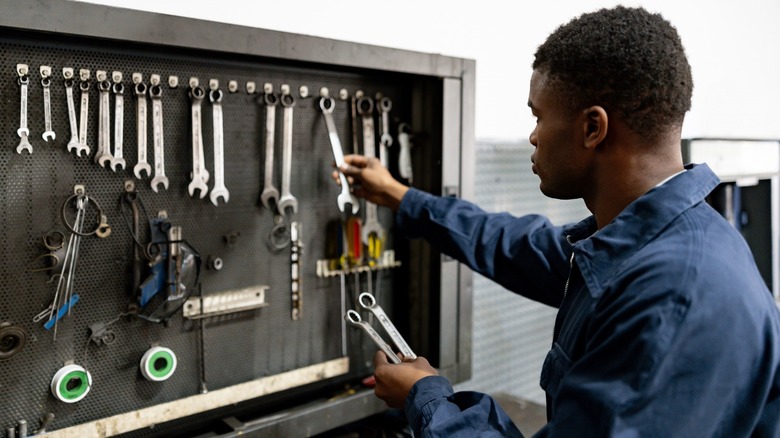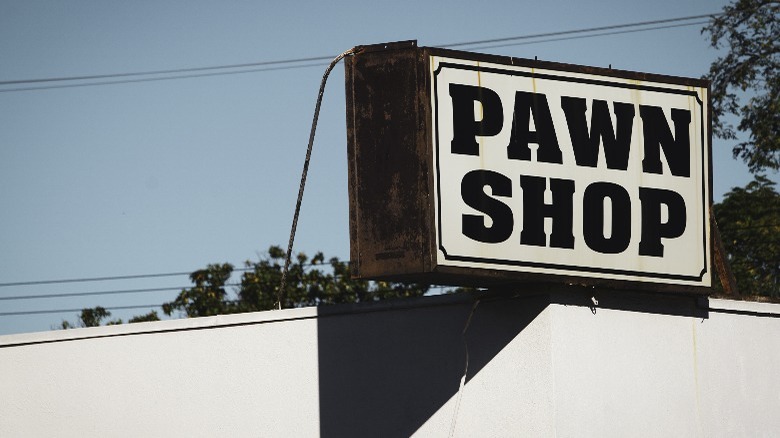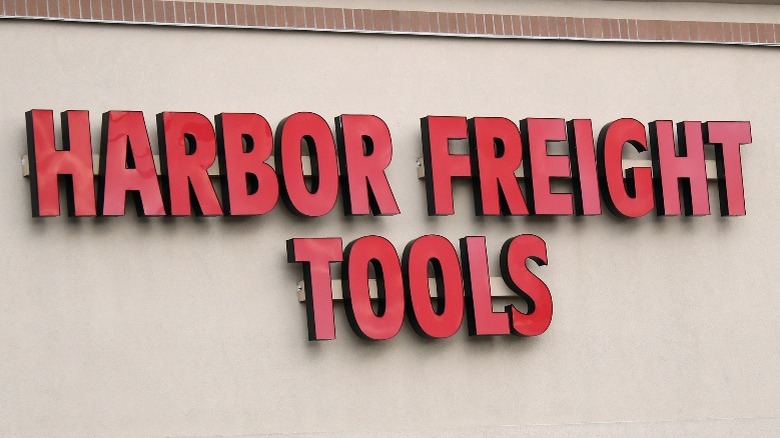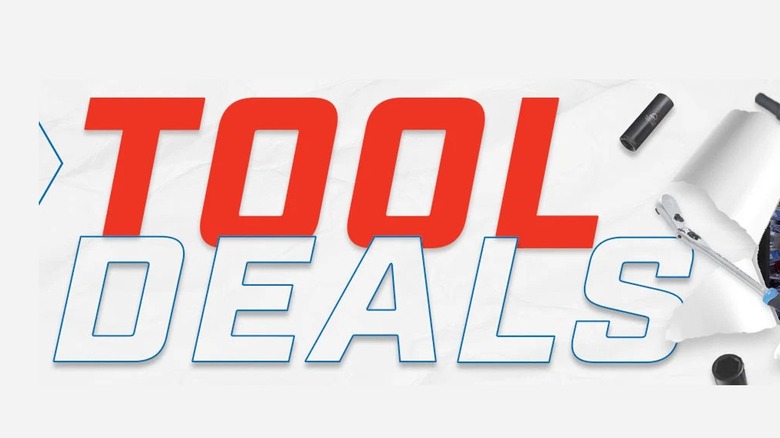5 Tips For Building A Professional Tool Kit On A Budget
Building a solid tool collection can take a lot of time and money, especially if you're only just getting started in a career. While home improvement enthusiasts and DIYers can get by with less expensive and lower-quality tools, professionals require high-quality equipment that won't break or fail after several months of daily use. That often means forking over big bucks for professional-tier tools. Furthermore, many professions, like auto repair, HVAC, or electrical work, require workers to have not only high-quality, durable tools but also a vast selection of equipment to handle innumerable situations and repair jobs. All of those factors can make it extremely challenging for new workers just starting out in an industry.
Fortunately, there are some methods you can use to build your toolbox on a budget. First of all, most of the best professional-level tool manufacturers provide lifetime warranties on their products without requiring a receipt of the original purchase. That means you can hunt for bargains on used tools without worrying about expired warranties. Second, it's important to purchase high-quality tools when you're a pro, but that doesn't mean all of your tools must come from an expensive name brand. Often, you can get by just fine with a cheaper economy option. So, from searching local pawn shops to shopping off-brand, here are five tips to help you build a professional tool kit on a budget.
Check your local pawn shops
Pawn shops don't always have the best reputations. But that doesn't mean that pawn shops can't be helpful. In fact, pawn shops are one of the best places to search for quality, used tools. Because tools, especially name-brand tools, can be so expensive, many retired workers or those in a financial pinch choose to sell their equipment to pawn shops for quick and easy cash. Many pawn shops have entire sections dedicated to tool displays and buckets upon buckets of loose tools, like sockets, wrenches, and screwdrivers. While many of the highest-quality and most expensive tools will end up behind glass, you can often discover name-brand sockets or wrenches that slipped through the shop's system in the buckets of cheap, loose tools.
When you visit a pawn shop to search for tools, look specifically for professional-level name brands like Snap-On, Matco, and Cornwell. Most of the tools produced by these companies come with lifetime warranties, and you don't need a receipt to cash in on those promises. You can frequently find name-brand tools in pawn shops for a fraction of the price you'll pay off the tool truck. Then, if you happen to break an item while working, you can contact your local representative or franchisee for a replacement free of charge.
Shop garage and estate sales
Garage and estate sales are another fantastic way to hunt for tool bargains. You're less likely to encounter individual tools and more likely to find entire collections up for grabs at these sales. Estate sales, in particular, are an excellent way to find older tools. You may discover a collection that took decades to build, filled with obscure equipment and unique devices. Even better, estate sale organizers don't always understand the actual value of high-quality tools, meaning you may be able to find expensive items at extremely low prices.
Garage sales are more likely to yield lower-quality, less expensive tools. But that's not always the case, and spending a few hours each weekend perusing local garage sales is a great way to find some diamonds in the rough. These sales are also wonderful places to search for tool storage options. You may encounter a toolbox well under its retail price, or you may find a random Snap-On ratchet buried in a box of junk. Again, hunting for name-brand tools is a solid plan, as the manufacturers will almost always honor their warranties, even if you didn't buy the tool yourself when it was new.
Browse classified ads
Checking out the local classified ads in your area is another great way to find tool deals. Sites like Craigslist, Facebook Marketplace, and local newspaper websites can be excellent resources for finding low-cost tools. When you search classified ads for tools, you're less likely to find fantastic deals on individual items. Generally, the seller will be a retired worker or someone who understands the value of the tools they're selling. That means the best way to find tool bargains in classified ads is to look for someone selling entire collections. While you may not find extreme deals on individual tools, it's common to discover sellers offering tool collections for a flat sum that can translate to hundreds, if not thousands, of dollars in savings. This is a great way to buy name-brand tools and toolboxes, and it can be a wonderful way for a beginner to acquire an extensive collection of quality equipment quickly.
When shopping classified ads, it's vital that you take a couple of precautionary steps. Only meet in safe, public locations with adequate lighting. Remember to thoroughly inspect the items for damage or flaws before handing over the cash, and always ask for a bill of sale or a receipt.
Skip the brand name
We've covered a few ways to buy pro-tier tools on a budget. But it's also wise to remember that not every tool in your collection needs to come from an expensive name brand. Sometimes, a Harbor Freight find will do the job perfectly and provide years of quality service. It's important to understand when you should purchase name-brand and when you can get away with an economy option. For things like hammers, pry bars, and breaker bars, there isn't a lot of real difference between budget and professional-level brands.
You may also consider purchasing entry-level, economy versions of the most expensive tools you'll need, like pneumatic devices. For example, you can pick up a cheap impact wrench from Harbor Freight for hundreds of dollars less than you'd spend on the Snap-On truck. These devices are excellent for beginners and those just starting their careers. Even though Harbor Freight tools are of undeniably lower quality than professional tools, they can still get the job done without sacrificing too much power. Purchasing one or two entry-level tools from Harbor Freight allows you to concentrate on buying other items off the tool trucks or from a professional brand. You could buy one $600 Snap-On air gun. Or you could buy a $150 tool from Harbor Freight and use your savings to purchase a wrench or socket set off the truck. Buying the cheap, entry-level tool will allow you to slowly build your kit, purchasing smaller items each week or month until you're ready to drop big bucks on the pro-level pneumatic device.
Shop the sales
Shopping the sales may seem like an obvious suggestion. But it's worth mentioning for a couple of reasons. One, sales are relatively common these days, and you typically don't have to wait too long to see one pop up on your favorite brand's website.
More important, however, is the fact that tool truck brands like Snap-On, Matco, and Cornwell usually rely on franchise owners to sell their products. The person who shows up each week in the Matco truck outside your local mechanic's shop is most likely an independent Matco franchise owner. That means these sellers can create their own promotions and sales. Forming a relationship with these vendors is important if you plan on buying name-brand tools. Ask them about upcoming promotions and what kind of deals they plan to offer. Many of these sellers even offer interest-free payment plans to help workers build their kits.
Even if you don't work at a shop, finding a tool truck in your area is not too hard. You can contact individual companies to ask about reps in your neighborhood, or you can visit local repair shops to ask when the tool trucks generally stop by. Then, swing by yourself and ask about any deals or promotions the vendor is currently offering or planning to offer in the future.





